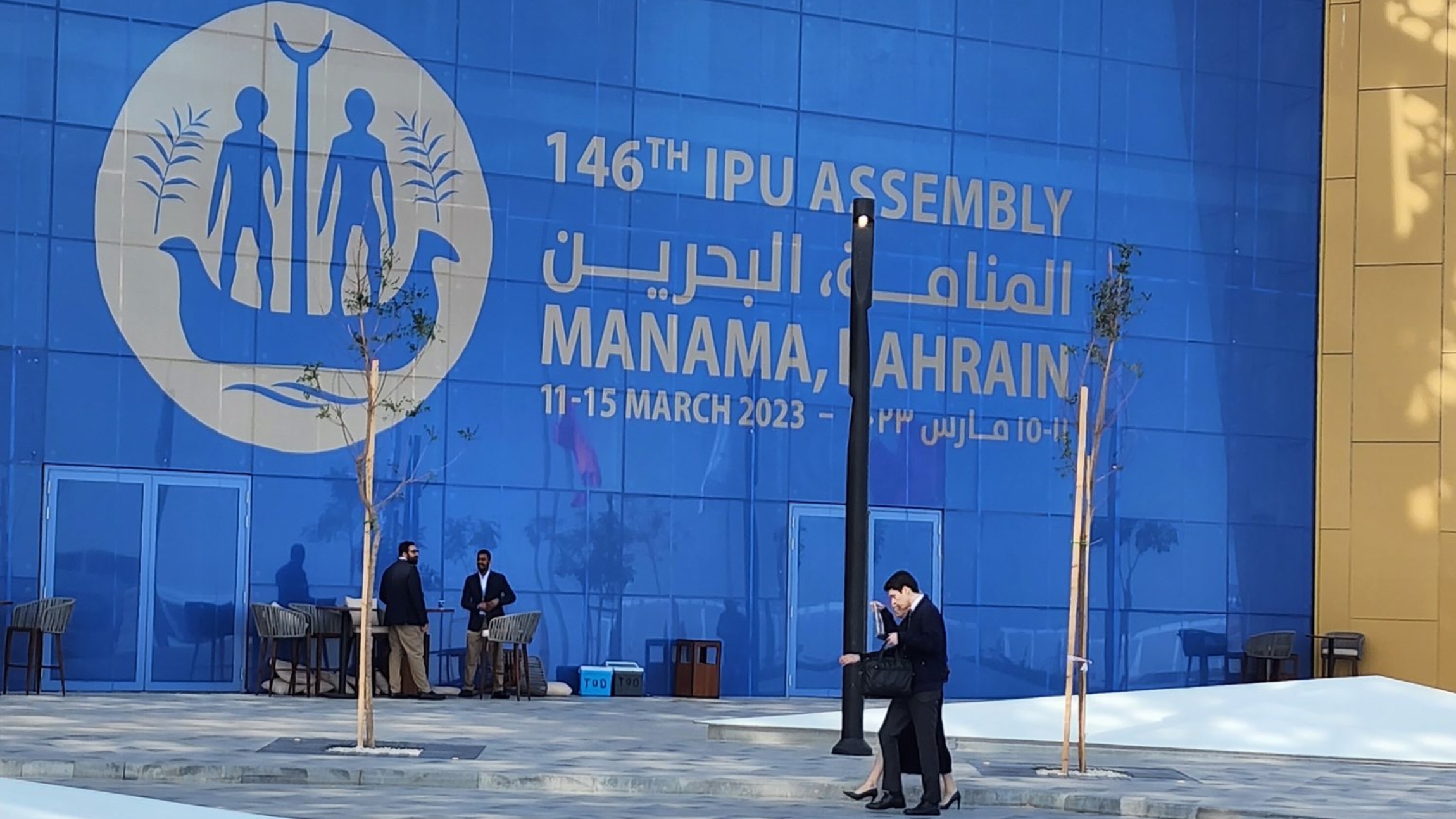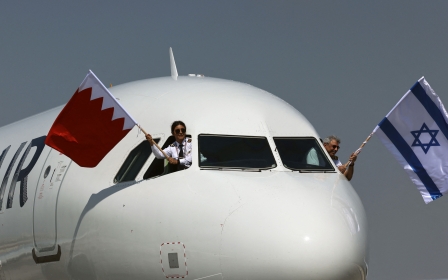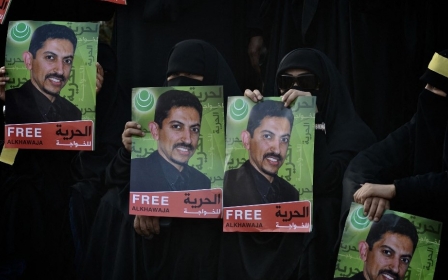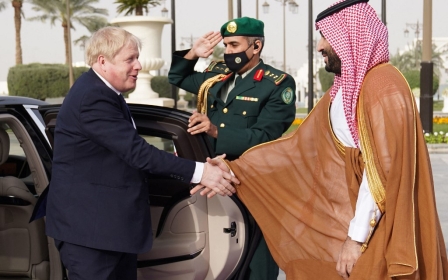Bahrain: Activist critical of parliament arrested ahead of international MP assembly

Bahraini authorities arrested a prominent activist and lawyer after he called for parliamentary reforms, days before MPs from around the globe gathered in the kingdom for a high-profile event dubbed a "PR disaster" by activists.
In a 6 March tweet, Ebrahim al-Mannai shared a news story about the Inter-Parliamentary Union (IPU) assembly and said that if Bahrain was interested in showcasing its parliament and in building an international reputation, it needed to make parliament "an effective partner in political and legislative decisions".
He and three others, who are understood to have retweeted his post, were subsequently arrested for abusing social media by publishing material that would "prejudice public order", according to Bahrain’s Public Prosecution Office.
Mannai has since been released, but rights groups are calling on the IPU and its delegates to demand that Bahraini authorities drop the charges against him and the three others.
"The parliament members attending this assembly should be using these arrests as an opportunity to speak out against Bahrain’s human rights abuses on behalf of the many who cannot," said Niku Jafarnia, Bahrain and Yemen researcher at Human Rights Watch.
'We call on the Bahraini authorities: Free Al-Khawaja'
- Soren Sondergaard, Danish parliamentarian
"As long as they do not, the Bahraini government will continue to arrest and abuse those who speak out."
The IPU is a Geneva-based organisation that promotes inter-parliamentary dialogue and diplomacy. Twice a year, the organisation, whose slogan is "For democracy. For everyone", convenes parliamentarians from around the world to exchange best practices and network.
With Bahrain as host, the theme of the 146th assembly, which drew to a close on Wednesday, was "promoting peaceful coexistence and inclusive societies: Fighting intolerance".
But Bahraini activists said the kingdom had attempted to use the assembly to whitewash its own human rights record, an effort that they say backfired repeatedly.
"This turned out to be a PR disaster for the Bahraini regime," said Sayed Ahmed Alwadaei, director of the Bahrain Institute for Rights and Democracy (Bird).
"By hosting an international conference, they thought they could launder their image on the global stage and sanitise their human rights record, which is steeped in appalling violations and the widespread imprisonment of their citizens who demand democracy."
'We get to speak out on it'
Before the assembly began, the kingdom revoked visas for Human Rights Watch, one of 22 organisations that called on participants to raise human rights concerns with Bahraini officials publicly and try to meet with imprisoned opposition activists.
As the event got into full swing, MPs from seven European countries used public speeches to criticise the kingdom’s human rights record, including several who raised concerns about Abdul-Hadi al-Khawaja.
Khawaja, one of Bahrain’s most prominent activists, was imprisoned and tortured in 2011 and sentenced to life imprisonment, after leading peaceful protests calling for fundamental freedoms.
The 61-year-old’s health has deteriorated during his incarceration. In December, the European Parliament passed a resolution recognising his conditions as a direct consequence of imprisonment, torture and deprivation of medical care.
Soren Sondergaard, a parliamentarian from Denmark, where Khawaja holds citizenship, said his delegation had asked Bahraini authorities to visit their "fellow Danish citizen", held a few kilometres from the conference centre, for humanitarian reasons. They did not receive a reply to multiple requests, he said.
"He is not a violent criminal. No. He’s a human rights defender and a prisoner of conscience," Sondergaard said. "We call on the Bahraini authorities: Free Al-Khawaja."
Irish Senator Gerard Craughwell tweeted that it might seem odd that an organisation that represented democratic parliaments would meet in a country with more than 1,400 political prisoners.
"The upside is, we get to speak out on [it]," he wrote, sharing a video of his speech at the assembly that threw support behind Sorengaard and others who spoke out.
Following the calls for Khawaja’s release, Jamal Fakhro, first vice chairman of Bahrain's Shura Council, asked delegates to refrain from interfering in internal affairs and said the Danish delegation should have asked for a meeting with the government to have greater clarity on Khawaja's case.
He denied that Khawaja had been tortured, adding that, if he had been tortured, his case would have been overseen by Bahraini oversight bodies, including the Ministry of Interior Ombudsman and the Special Investigation Unit.
Maryam al-Khawaja, Abdul-Hadi’s daughter, said on Wednesday that those bodies were created a year after Khawaja was tortured, in acts documented by the government-commissioned Bahrain Independent Commission of Inquiry report.
"It is appalling to see the Bahraini delegation spokesperson telling blatant lies about the human rights situation in Bahrain as well as my father’s condition," she said.
"His citing of institutions set up a year after my father’s imprisonment, and which have yet to investigate my father's torture, lays bare Bahrain’s transparent attempt to cover up the truth."
The IPU and Bahraini government did not respond to requests for comment.
Middle East Eye propose une couverture et une analyse indépendantes et incomparables du Moyen-Orient, de l’Afrique du Nord et d’autres régions du monde. Pour en savoir plus sur la reprise de ce contenu et les frais qui s’appliquent, veuillez remplir ce formulaire [en anglais]. Pour en savoir plus sur MEE, cliquez ici [en anglais].





